![]() — หน้าแรก — เกาะติดข่าว
— หน้าแรก — เกาะติดข่าว
ข่าวเศรษฐกิจและธุรกิจประจำสัปดาห์
-
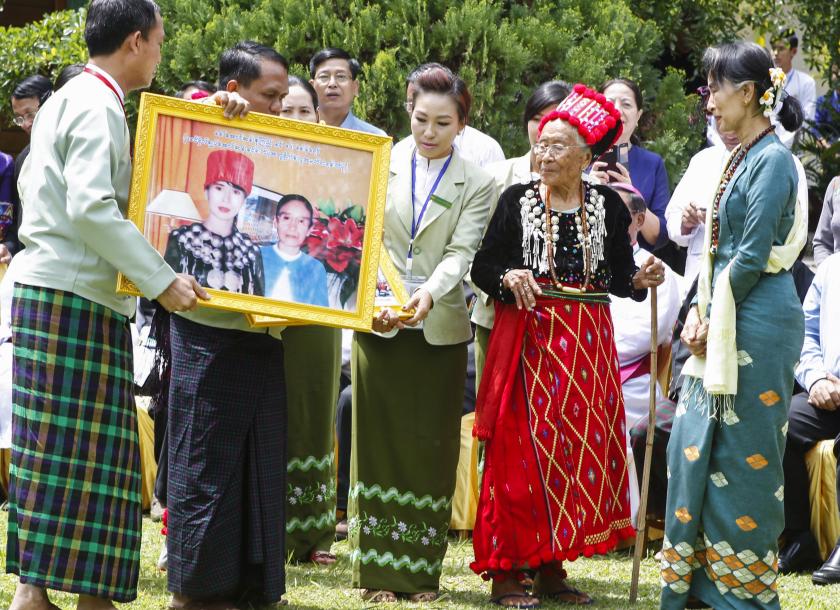
Regional conflict stands in the way of Foreign Direct Investment (FDI) in Kachin State, which led to Chinese investors having second thoughts on investment
Foreign investment in Kachin State currently happens in spite of, not because of, the government. IN an article “Kachin fighting scaring off investors: official” published by The Myanmar Times on June 21, U Tun Kyaw Kyaw, assistant director of the state’s Directorate of Investment and Company Administration (DICA), said that Chinese investors who had expressed interest in construction, mining, livestock, agriculture, electricity and tourism have had second thoughts as the fighting intensified in the region. Given the instability of many areas in the state, he said it was difficult for investors to come. Most instructive were these comments, because they showed a lack of understanding of what it takes to attract foreign direct investment to Kachin State. The current state of belligerence has much less to do with lack of foreign investor interest than he might think. -
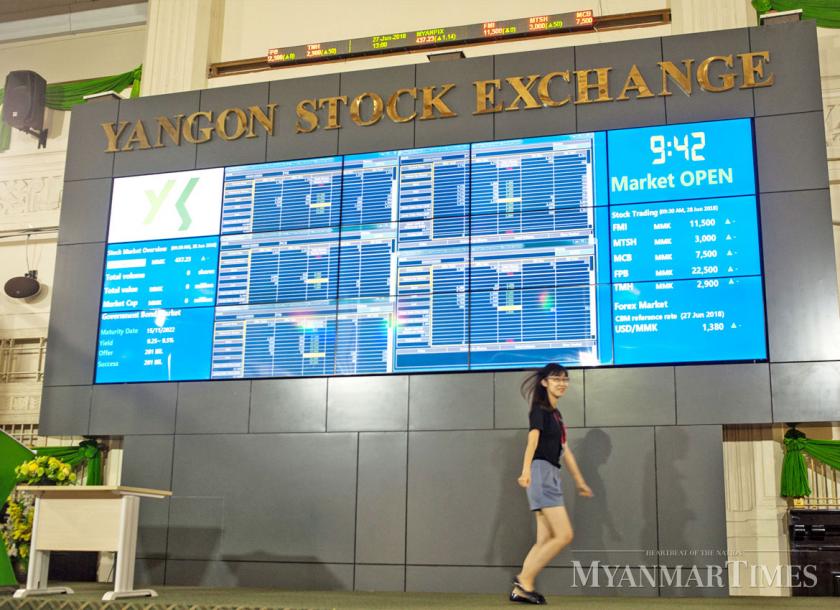
Enforced rules, regulations and policy instructions for foreigners to trade on Yangon Stock Exchange (YSX) will be issued by late August 2018
Policy and regulations allowing foreigners to trade on the Yangon Stock Exchange (YSX) will be released by late August, according to U Htay Chun, member of the Securities and Exchange Commission of Myanmar (SECM). “We are working towards announcing the required regulations and policy instructions by the end of this month. Meanwhile, the YSX-listed companies and securities companies are still making preparations. Once the instructions are released, listed firms which are ready will be able to sell shares to foreigners,” U Htay Chun told The Myanmar Times yesterday. Though the Myanmar Companies Law was passed in December last year, there have been delays in enforcing the rules, regulations and procedural instructions for foreigners to participate in stock trading on the YSX. “To be able to sell shares to foreigners because of the Myanmar Companies Law is a good opportunity for our firm. But so far, we have not received the rules on how to commence trading with foreigners yet. We need the announcements to be made quickly for more liquidity in the capital market,” U Serge Pun, chair of YSX-listed First Myanmar Investment Co (FMI), said during the company’s AGM on July 29. -
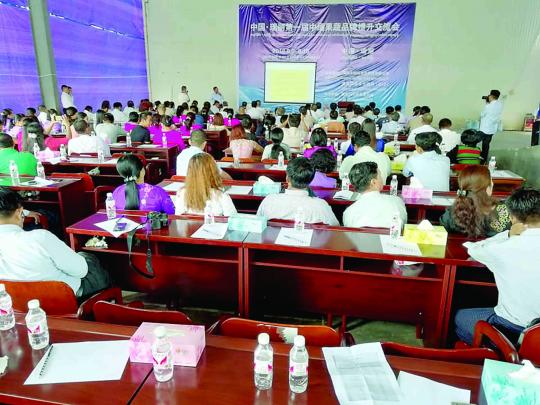
Products from illegal Chinese plantations in Myanmar account for more than Myanmar exports to China from Muse 105 miles wholesale markets
There are illegal Chinese plantations in Myanmar and at present, produce from their plantations is more than the export from Muse 105 miles wholesale markets according to Chairman of Muse 105 miles fruit wholesale market Sai Bo Myint. On August 9th, a China-Myanmar meeting on upgrading the quality of fruits and vegetables was held at the Wantain fruits and vegetables center in Shweli in China. He answered the questions of media that current Chinese illegal plantations’ produce is more than the export of Muse 105 miles wholesale markets. -
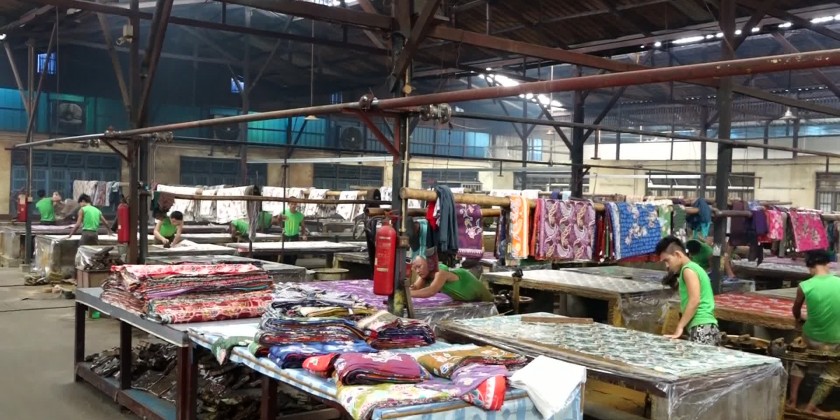
Officials from ASEM SMEs Eco-Innovation Centre inspected the factories in Shwe Pyi Thar and Hlaing Thar Yar Industrial zones in order to explore the issues and find out solutions which are tailored to local needs and local markets
The officials from ASEM SMEs Eco-Innovation Centre inspected the factories in Shwe Pyi Thar and Hlaing Thar Yar Industrial Zones on Friday to meet the goals of ASEM Eco-Innovation Capacity Building Program 2018. The inspection is the first step of the ASEM Eco-Innovation Capacity Building Program 2018 and the primary purpose is to find out the area which is customized for the Myanmar business - to explore the issues and find out solution which is tailored to local needs and local markets Senior Researcher, ASEM SMEs Eco-Innovation Center, Younji Kang said “Today, we asked the Ministry of Industry in Myanmar to give us some opportunity to look over the current status of the Myanmar's factories. We want to find out which part of it we can help them to implement some eco-innovation or eco-friendly products and how to make it, we want to find it out. So, that's why we are here today.” The senior researcher also added that ASEIC is trying their best to look for how can they help Myanmar companies to follow up with the global standard or global market especially in eco-innovation sector. -
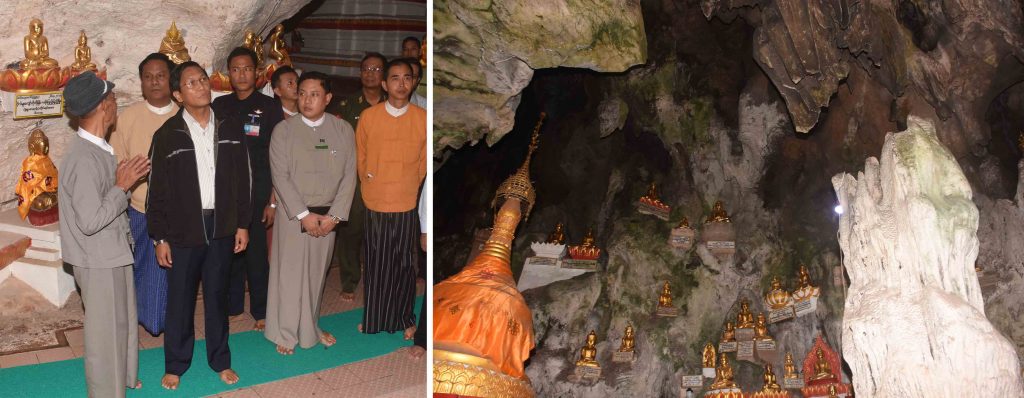
Myanmar authorities stressed on providing better tourism services before looking into the requirements for the development of community-based tourism industry in the Danu Self- Administered Zone at a village in Pindaya Township
“Hopefully, tourist arrivals will be higher in the coming open season, as visa relaxation for South Korea, Japan and China has already been made,” said Vice President U Henry Van Thio during his tour of Danu Self-Administered Zone on 5 August. The Vice President also stressed necessary preparations for providing better tourism services before looking into the requirements for the development of community-based tourism industry in the Danu Self-Administered Zone at a village in Pindaya Township. In his capacity as the Chair of the Central Committee for the Development of the National Tourism Industry (CCDNTI), the Vice President inspected the Shwe Oo Min Cave, preparations for community-based tourism, a green tea factory, a coffee farm and a coffee mill in Pindaya and Ywangan townships of the zone in Shan State in the east of the country, At an elephant camp in Kalaw township, southern Shan State, he heard a report on the salient points of the camp, the future prospects of the tourism industry, the upgrading of the camp’s entrance road, the electrification of the camp and plans for hosting greater number of vacationers in the coming open season, presented by an official of Myanma Timber Enterprise (MTE). In response, he stressed the need to exert efforts for greater success of the camp that has become popular within a short period after its inauguration and for turning the facility into an all-season destination. -
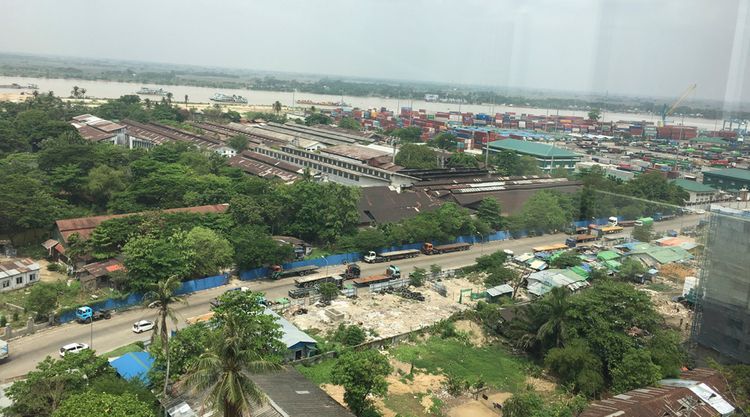
Union Government seeks Union Parliament approval to establish Yangon Special Economic Zone project on about 20,000 acres of land covering Dala, Kawhmu and Kungyangon townships in Yangon
The union government will seek approval from union parliament to establish Yangon Special Economic Zone on about 20,000 acres of land covering Dala, Kawhmu and Kungyangon townships in Yangon Region, according to a development proposal plan of the region. Currently, the Yangon region government is holding a series of work coordination meetings on the implementation of Yangon SEZ project that will include deep-sea port construction. Over 20 development projects have been proposed for the region with the aim of improving industrial sector, creating job opportunities, improving trade sector and ensuring easy flow of foreign exchange. The projects include housing improvement, new town plans, industrial zones, dry pots, Nyaunghnapin industrial zone, elevated road project and 11 industrial zones outside the municipal area. However, a new Yangon city project has less potential for implementation following a remark made by President Win Myint. Meanwhile, some of those proposed development projects are also facing opposition. -
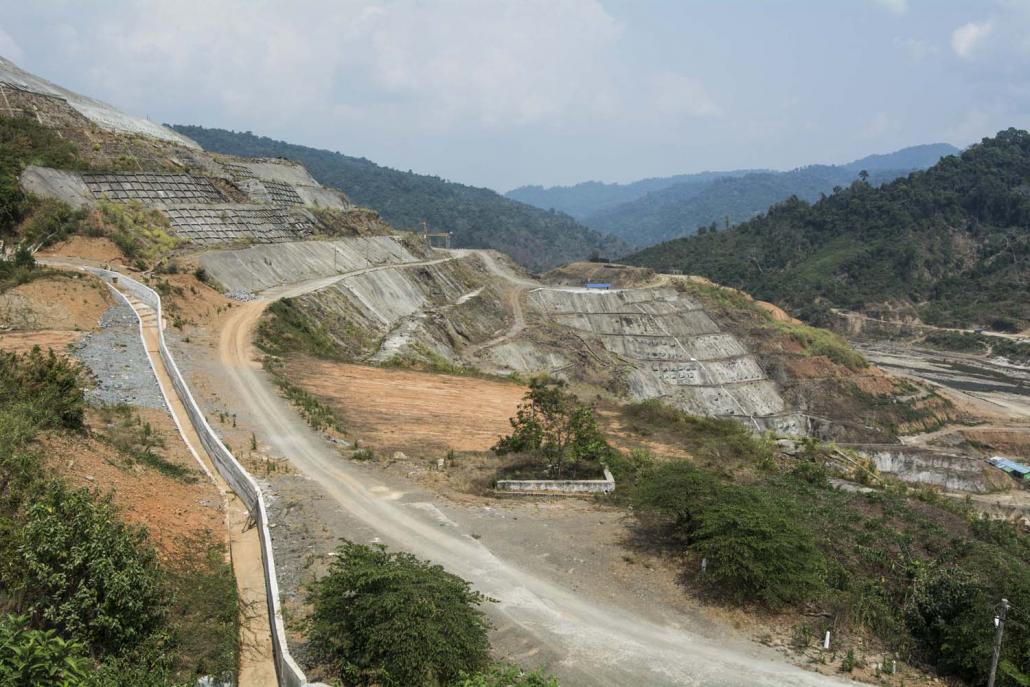
Ministry of Electricity and Energy signed power purchase agreement with Great Hor Kham Public Co.,Ltd for the Nam Paw hydropower project in northern Shan State in order to meet Myanmar’s growing energy needs
After announcing high-profile gas-fired power projects earlier this year, the Ministry of Electricity and Energy is now focusing on a string of hydropower dams – most with Western developers – to meet Myanmar’s growing energy needs. AT A CEREMONY in Nay Pyi Taw on July 5, the Ministry of Electricity and Energy signed a power purchase agreement with Great Hor Kham Public Co, Ltd for the Nam Paw hydropower project in northern Shan State. The signing didn’t get much media attention. The project is only 20 megawatts; Myanmar needs to add something like 300 megawatts a year of installed capacity just to keep up with rising demand. Although it may power up to 40,000 homes in Muse Township, Nam Paw is the proverbial drop in the ocean. But the agreement is symbolically important, not least because it appears to be the first PPA for a new power project signed since the National League for Democracy government took office in late March 2016. -
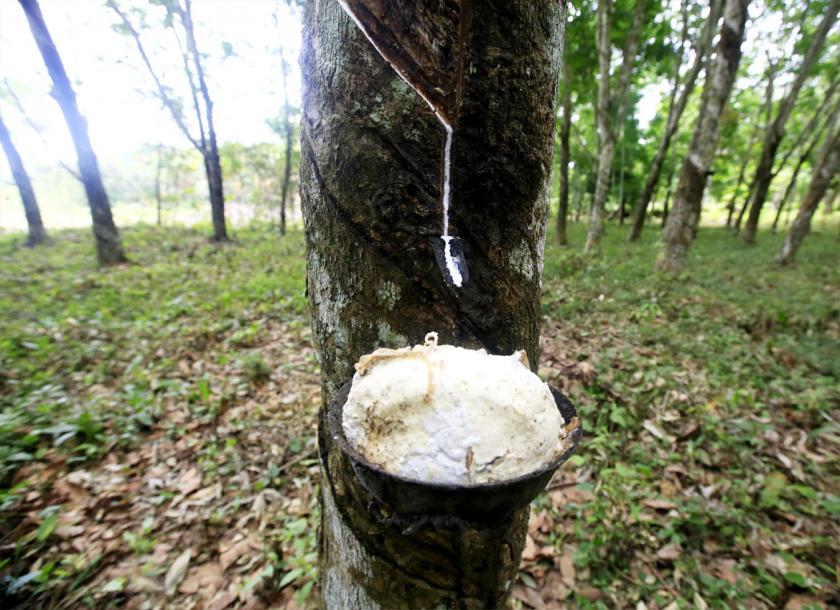
Myanmar rubber industry will benefit from better development of technology, access to rubber species and better market penetration from Natural Rubber Producing Countries (ANRPC) membership
Myanmar rubber businesses will benefit from more growth opportunities if the country joins the Association of Natural Rubber Producing Countries (ANRPC), said U Hla Kyaw, deputy minister of the Ministry of Agriculture, Livestock and Irrigation (MOALI). “The rubber industry will enjoy better development of technology, access to rubber species, better market penetration and more job opportunities if Myanmar joins the ANRPC,” U Hla Kyaw said. The ANRPC has also advised and urged MOALI to join their association. The yearly membership fee to join the association is US$5,000, with an initial payment of $1,666 required for the four months between September and December. -
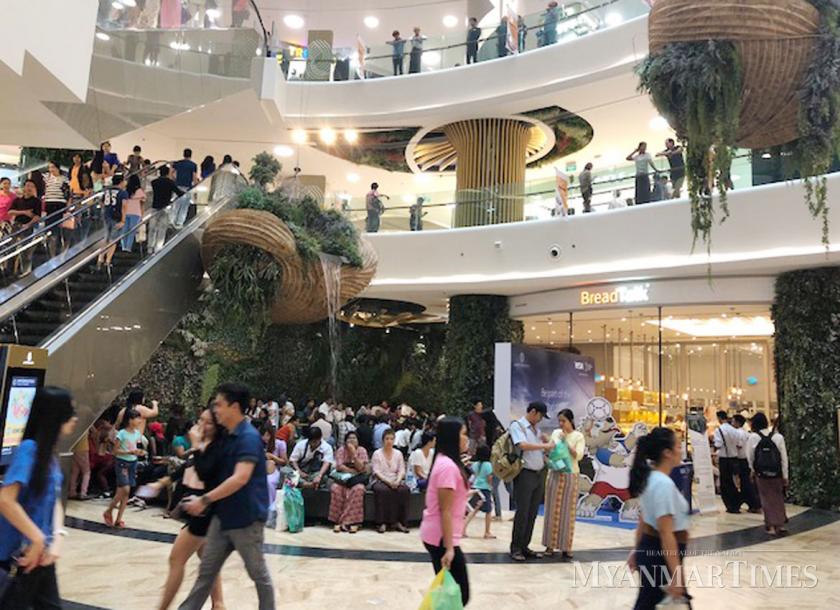
Retail market in Myanmar yields better opportunities for growth compared to the neighbouring countries and demand for retail space is still on the rise
Demand for retail space has been on the rise in Yangon, where the population has swelled and living standards are improving. Earlier this year, the government also permitted foreign ownership of local wholesalers and retailers and last month allowed businesses in the sector to trade in a total of 24 products. Ko Nay Min Thu, managing director of imyanmarhouse.com, told The Myanmar Times that the retail market in Myanmar yields better opportunities for growth compared to neighbouring countries. This is because there are still few shopping malls in relation to the number of people. “Shopping malls with recreational areas have become popular in Singapore, Thailand and Malaysia. When Myanmar people visit these countries, they have fun in these shopping malls so there is potential to develop similar retail offerings in Myanmar,” he said. The retail sector can be broken down into shopping malls, hypermarkets, supermarkets, department stores and supporting retail outlets such as standalone stores or shops in condominium buildings, for example. -
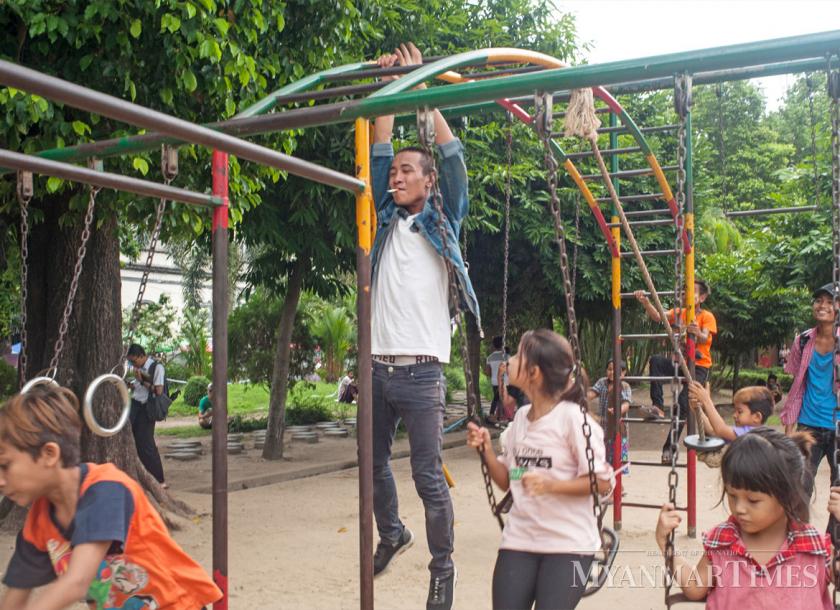
Insurance providers including state-owned Myanma Insurance and 12 private insurance companies will provide short term endowment life insurance policies in Myanmar
Insurance providers in Myanmar including state-owned Myanma Insurance and 12 private insurance companies will provide short term endowment life insurance policies as part of their product portfolios, said Daw Sandar Oo, chair of Myanmar Insurance Association (MIA) and managing director of state-owned Myanma Insurance. Currently, Myanma Insurance provides 26 types of insurance and private insurance companies provide 13 types of insurance, including general, fire and vehicle insurance policies. On August 3, Grand Guardian Insurance (GGI) became the first insurance provider to offer short term endowment life insurance in Myanmar.
เกาะติดข่าว
Copyright © 2014 Business Information Center All Rights Reserved.







